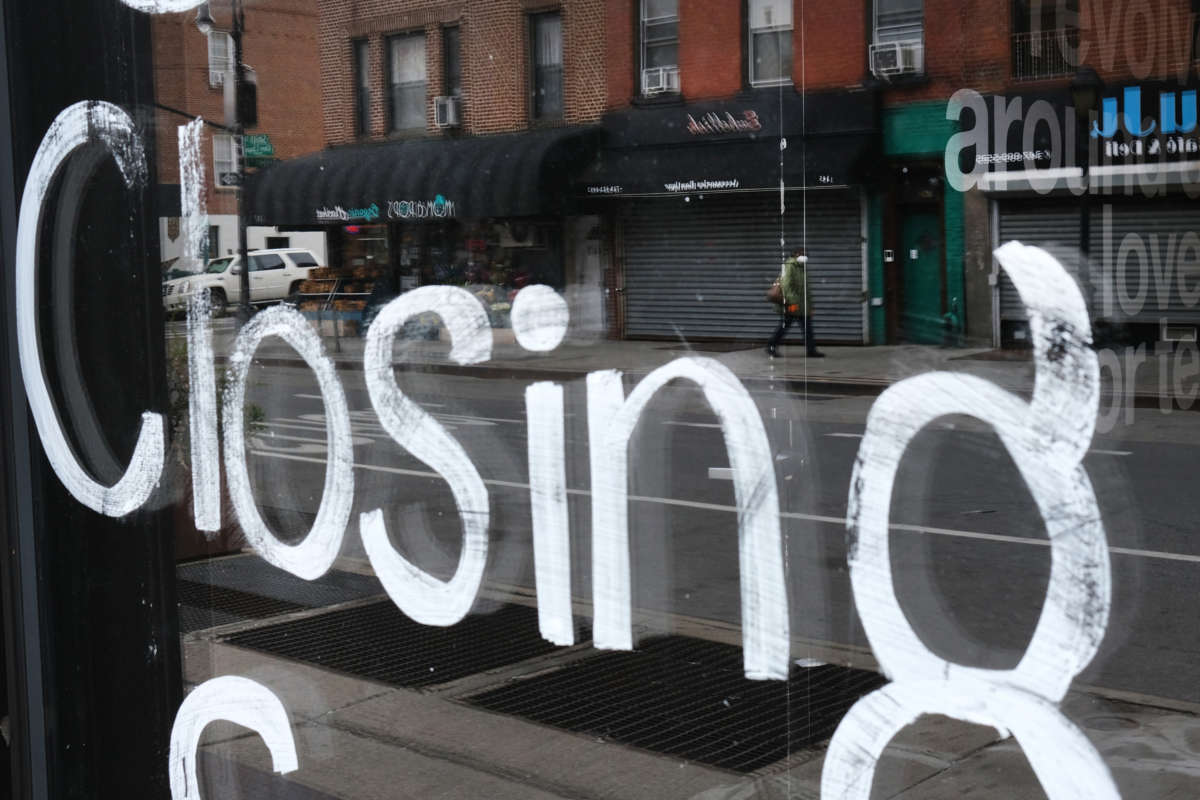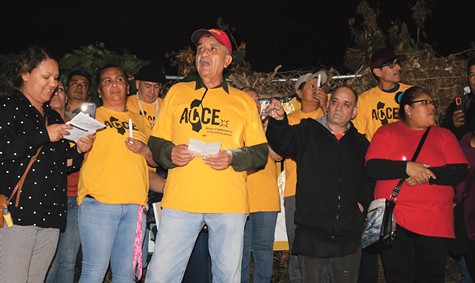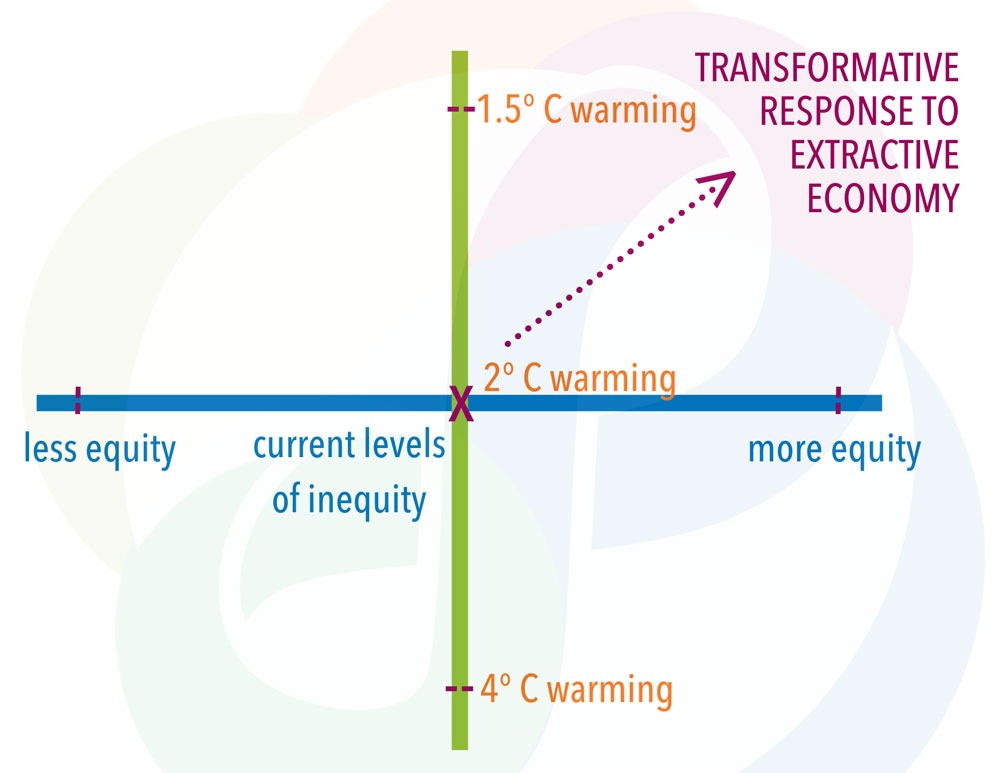Statement About Coronavirus Prep & Prevention at the Law Center
May 2020 UPDATE: Due to ongoing shelter-in-place orders, the Law Center has extended our practice of moving all our events online until further notice.
In light of developments around the spread of the novel Coronavirus (COVID-19) here in California, as of March 10, 2020, the Law Center will be suspending all public in-person events and moving them online for the next two weeks.
We are also recommending that all Law Center staff work from home and use their best judgement in determining whether or how to participate in outside events, including following recommended prevention practices as they conduct their work.
Read morePandemic Crash Shows Worker Co-ops Are More Resilient Than Traditional Business
By Brian Van Slyke, TruthOut

Excerpt: “In fact, as documented by the Sustainable Economies Law Center, there is a growing body of evidence that shows across the world, cooperatives in general are a more resilient business model.”
Read the full article here.
(Originally published May 8, 2020.)
Mutual Aid In The Wake Of COVID 19 by Renegade Paradise • A podcast on Anchor
Check out the latest episode of Renegade Paradise from Charleston Democratic Socialists of America, where the Law Center's own Chris Tittle discusses mutual aid, disaster capitalism, and organizing in the South during COVID-19 with Mutual Aid Disaster Relief!
Background: As the COVID 19 global pandemic continues, we discuss the importance of building and participating in mutual aid organizations with a comrade from Mutual Aid Disaster relief. Conversation topics include participating in hurricane relief efforts in Lumberton with Charleston DSA after Hurricane Florence hit in 2018, how climate disaster relief compares to (and has a lot in common with) the COVID 19 pandemic, how different populations are affected by natural and manmade disasters, and how it is critical for the left to get involved with mutual aid projects in order to achieve a broader goal of the complete transformation of our economy and society. Mutual Aid Disaster Relief is a grassroots disaster relief network based on the principles of solidarity, mutual aid, and autonomous direct action. Inspired by similar programs run by the Black Panthers during the 60s, the group encompasses a loosely-connected national network of activists from many different disciplines organizing around supporting survivors of natural disasters.
Listen to the full podcast here.
(Originally released on April 17, 2020.)
The Plague of Worker Expendability with Sabiha Basrai and Ricardo Nuñez
The Plague Podcast with L.M. Bogad

Excerpt: In this episode, we speak with guests Sabiha Basrai and Ricardo Nuñez about the plague of worker expendability in our current economy, and how worker owned-cooperatives are the cure. The coronavirus has only put into starker relief a problem we have always had--that the lives and well-being of many workers are considered disposable by the CEOs and shareholders of their employing corporations. So, how do worker-owned cooperatives give workers shared opportunity, rewarding careers, and the ability to make a living without cutthroat competition with each other? And how, in practical and legal terms, can folks start a cooperative for themselves?
Listen to the full podcast here.
(Originally published on May 13, 2020.)
Now Is the Time to Take Radical Steps Toward Housing Equity
The Law Center's very own Chris Tittle was recently published in YES! magazine, where he proposes new frameworks for social housing. Check out the excerpt below or the full article here!

Excerpt: It’s time to think big about housing. No more evictions and foreclosures. Rent and mortgage cancellation on a grand scale. Twelve million new green housing units in the next 10 years. A massive reinvestment in housing under public control, resident control, and community control. Rent freezes, rent control, tenant protections, and anti-displacement measures across the nation.
Read the full article here.
(Originally published on May 6, 2020.)
Small Businesses Need Help - We need to cancel their rents, too — Inclusive Action for the City
By Erika Hernandez, Inclusiveaction.org

Excerpt: I recently attended a “Protecting and Empowering Commercial Tenants in the Age of Coronavirus” zoom workshop hosted by the Sustainable Economies Law Center and the Lawyers’ Committee for Civil Rights of the San Francisco Bay Area. Moderators gave guidance about what commercial tenants should say when writing to their landlords. For example, tenants should explicitly mention:
-
COVID-19;
-
Governor Newsom’s business closure order;
-
How their businesses have been impacted by COVID-19;
-
Why this impact has prevented them from being able to pay their rent in full; and
-
Their plans to re-open their businesses as soon as possible.
The workshop also included different strategies for negotiating rent payments, like postponing rent due, reducing rent payments for a period, or offering to give landlords a percentage of net revenue after expenses. More notably and in true “not me, us” fashion, however, were the reminders of our interdependence. Business owners who rent from small landlords were encouraged to empathize with their landlord’s financial struggles and express their willingness to advocate for a mortgage freeze.
Read the full article here.
(Originally published May 4, 2020.)
Legal Strategies for Achieving Worker Control During Covid-19

By Jay Cumberland  , Equal Justice Works Fellow Sponsored by the eBay Foundation
, Equal Justice Works Fellow Sponsored by the eBay Foundation
Read time: 15 minutes
DISCLAIMER: This is legal information, not legal advice. Please consult with your own attorney before taking action based on this information.
Workers could take advantage of this crisis to seize ownership and control of businesses. In times like this, the rules of the game don’t match the game being played. Anything, good or bad, becomes more possible. Of course, old rules and laws continue to stack the deck against worker control. So, what strategies should workers employ to fight against the odds and seize ownership and control of businesses across the country? Where will the money come from to do this? How can this be accomplished when the law is not on the side of workers? In this article, I outline legal strategies available to workers during Covid-19 that might make it possible to change the terms of everyday life.
Want to watch a video about this instead of reading? Check out the video below. It covers almost everything in this article.
Read moreA Different Relationship With Housing
By Jean Tepperman of East Bay Express

Image credit: Alliance of Californians for Community Empowerment (ACCE), a grassroots tenants' rights organization
Excerpt: A growing network of support for land trusts and housing cooperatives operates in the background [of this effort to rethink affordable housing]. The Sustainable Economies Law Center has long provided legal help and policy advocacy for collective economic activities and will soon launch a Radical Real Estate Law School to train lawyers to work with these projects. The California Community Land Trust Network shares resources and promotes favorable state policies. At the grassroots level, the People of Color Sustainable Housing Network connects community activists working in many of these projects. It also partners with the Sustainable Economies Law Center to deliver a training program to equip low-income residents to launch their own projects.
Read the full article here.
(Originally published March 4, 2020.)
PPP Round 2: Let’s get this money to locally-owned biz and coops!
By Charlotte Tsui and Elizabeth Burnett, Staff Attorneys at the Law Center

This morning, the House of Representatives voted in favor of the $484 billion relief bill that passed in the Senate earlier this week. Once signed into law, the Paycheck Protection Program and Health Care Enhancement Act will infuse fresh new funding for small business relief to the tune of $310 billion for the Paycheck Protection Program (PPP) and $60 billion for SBA Economic Injury and Disaster loans (EIDL) and grants.
Read moreWorker Ownership as a Small Business Solution During Covid-19

By Jay Cumberland  , Equal Justice Works Fellow Sponsored by the eBay Foundation
, Equal Justice Works Fellow Sponsored by the eBay Foundation
Read time: 15 minutes
DISCLAIMER: This is legal information, not legal advice. Please consult with your own attorney before taking action based on this information.
Small businesses confront a cash flow crisis without help on the horizon. Lenders aren’t helping enough. State governments aren’t helping enough. The federal government isn’t helping enough. Big businesses have the help they need, of course. When no one else has been willing to help, who can small business owners turn to? They’ve already been turning to their customers to raise funds. They can also turn to their workers. This is mutual aid--exchanging resources and services to satisfy needs without depending on the government. Providing workers with partial or full ownership can help small business owners and workers during COVID-19. Want to watch a video about this instead of reading? Check out the video below!
Read moreSBA COVID loans are depleted. Now what?
This morning, SBA announced that it is no longer accepting applications for its COVID-related loans due to a lapse in funding. The funds set aside for SBA’s Economic Injury Disaster Loans (EIDL) and Paycheck Protection Program (PPP) ran out in just a few weeks after launch.

ICYMI: Protecting commercial tenants in the age of coronavirus

We compiled resources so communities can take action and support our beloved small businesses as they renegotiate commercial leases and protect against eviction. During this half-hour huddle, Tobias Damm-Luhr from the Lawyers Committee shared about eviction moratoriums adopted by cities, sample letters to landlords, tips on renegotiating rent payments, and more!
The Sustainable Economies Law Center is co-hosting this event with Legal Services for Entrepreneurs, an economic justice and community empowerment project of the Lawyers' Committee for Civil Rights. LSE was founded in 1997 by attorneys who recognized that a small business’s long-term viability may be jeopardized when it forgoes legal assistance on fundamental business matters. LSE provides free transactional legal services to low-income individuals who want to start or develop businesses, businesses committed to investing in economically distressed communities, including hiring people with arrest and conviction records, and mom and pop shops located in areas where gentrification is a force for displacement.
Read moreA COVID-19 Response Meeting for the Cooperative Community
Last Friday, March 20, the Law Center co-hosted a webinar with the Network of Bay Area Worker Cooperatives (NoBawc) for the cooperative community to share resources and discuss potential responses in light of unprecedented challenges caused by the pandemic. If you missed the webinar, you can tune in to the recording below.
Watch the Webinar Recording
Read moreShould Berkeley tenants get first dibs on buying their landlord’s property?
By Natalie Orenstein of Berkeleyside

The Law Center's Jay Cumberland, second from the left, congregate alongside supporters and opponents of Berkeley’s Tenant Opportunity to Purchase Act (TOPA) outside a City Council policy committee meeting Thursday, March 5, 2020. Image credit: Natalie Orenstein
Excerpt: Under TOPA, authored by Mayor Jesse Arreguín, landlords who wanted to sell their rental property would have to give their tenants the first right of refusal to buy it, at a price named by the owner. The tenants can assign their rights to a city-approved affordable housing organization — like a land trust — if they couldn’t afford the cost themselves. If the tenants decided to move out instead of buying the building, those housing organizations would get second dibs.
Read the full article here.
(Originally published on March 6, 2020.)
Rethinking Our Climate Vision: Beyond Pass/Fail
Subin Devar, the Law Center's Director of Community Renewable Energy, penned this essay, Are You Thinking About Climate Change Wrong?, as part of our membership campaign in January 2020. It was recently republished in Nonprofit Quarterly.

Everyday people, at least in the US, are more concerned and more pessimistic about climate change. Perhaps this is because of diminishing trust in government or the sheer scale of the problem. From my experience, people who work on climate, energy, or social justice issues are a bit more hopeful than others, even if they are weighed down at times by worry. It appears that people around the globe are a little more optimistic that we can avoid the worst effects of climate change. But is that enough? Avoiding the worst effects?
In this context, a pass/fail framing of climate change has two key problems.
Read the article on Nonprofit Quarterly here, or the original post on the Law Center's blog here.





